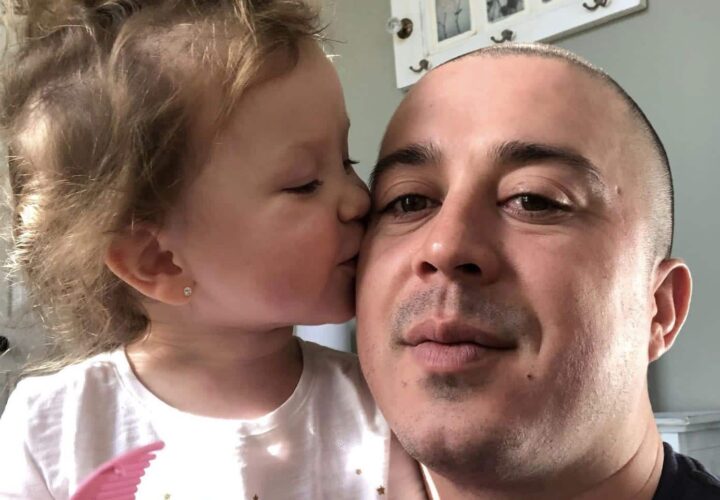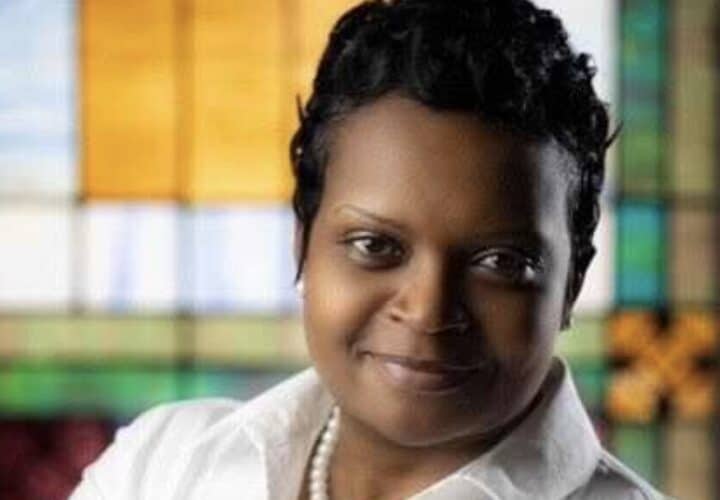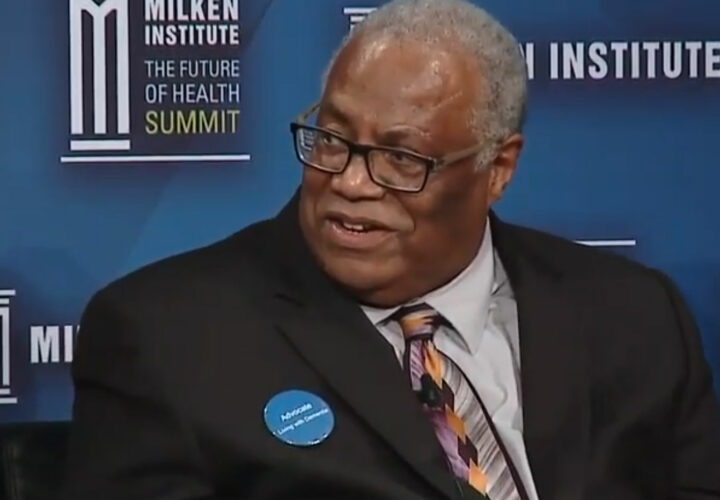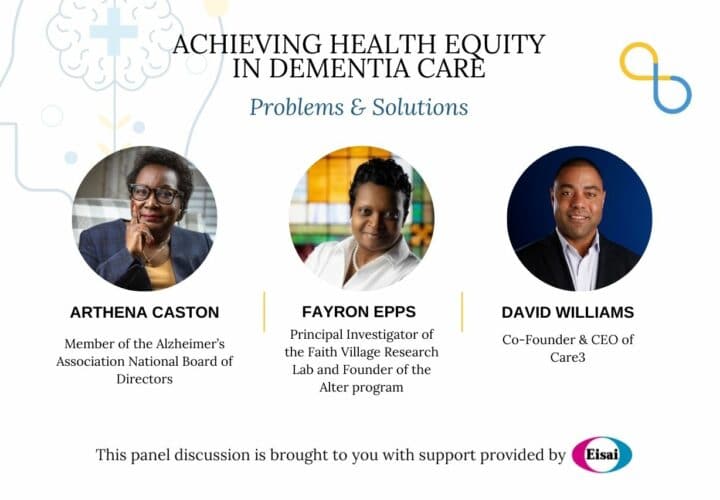Christiana Egi is the owner of the Alexis Lodge — a home to more than 20 people living with dementia. But why stop there? Authoring children’s books and hosting a podcast, she is constantly growing her impact when it comes to dementia awareness and support for her community, children and adults alike.
This article is part of the series Diversity & Dementia, produced by Being Patient with support provided by Eisai.
Registered nurse Christiana Egi started Alexis Lodge to help people with dementia by providing personalized support and resources. This helped them maintain their daily routines, and dignity while helping them feel at home.
“I created a home where this will be treated with respect, love and dignity,” she told Being Patient.
But when she realized most of the residents never received visits from their family due to the stigma surrounding the behavioral symptoms of dementia, Egi said, she wanted to do something more. She started to raise awareness about the condition — especially in Black communities — through children’s books.

Centering dementia care around the patient — not the disease
Egi moved to Canada after graduating from her nursing program. She spent a decade working in the crisis unit of a large psychiatric hospital in Toronto. That’s where she first started to see this stigma at work, she said: She realized that many people with dementia would get readmitted to the hospital because their behavioral symptoms weren’t being managed.
“There’s not enough supportive housing, and they don’t get assistance or encouragement or take their medication,” she said. “That was when I decided that I was going to take care of seniors, people with dementia.”
Egi named her facility Alexis Lodge after her third child. While many long-term care facilities are large, the Lodge is smaller and designed more like a home than a care facility.
“There are lots of facilities that take care of people with dementia, but because they are big, and they don’t have enough staff you find that people are rushed along,” she said.
The advantage of a smaller facility is the ability to provide personalized care. “It may take one person an hour to get dressed in the morning, and another person may not want to do it at all so you need that time to be supportive and encouraging,” Egi said. This way, they continue doing everyday activities at their own pace. A larger facility might instead rush to make sure all residents get dressed by a certain time.
Alexis Lodge also helps them continue doing the tasks they struggled with at home on their own. “People with dementia, a lot of times are scared of water,” she said, adding that it makes it harder for families to manage getting them into the shower. “Sometimes we even have someone who hasn’t showered for a year come in and then the staff will help get them showering almost daily.”
Egi is sure they feel comfortable because many of the residents consider the facility their home. The facility has 21 residents that live there, and are able to continue along with their daily routines. That means having a fridge where they can grab snacks, a kitchen where someone can help them continue cooking, and lots of activities. But unfortunately that doesn’t mean that the residents’ families will visit often. “I can tell you that almost 70 percent of their families don’t turn up,” she said.
But even after establishing Alexis Lodge, she still saw further opportunity to help people living with dementia — today and in the future. One difference she felt she could make was giving young people better tools to understand what was happening to their older family members. So began her career as a children’s book author.
Empowering children to learn more about dementia
Egi describes caring for a family member as a challenging 24/7 job. Some people might even feel relieved when a loved one is placed in the home. It gives people time to look after themselves rather than always worrying about their loved one. But they might also become hesitant to visit: “Some people say ‘Oh, I don’t want to see my mom like this’ or ‘I don’t want to remember them like this,’ so they don’t visit.”
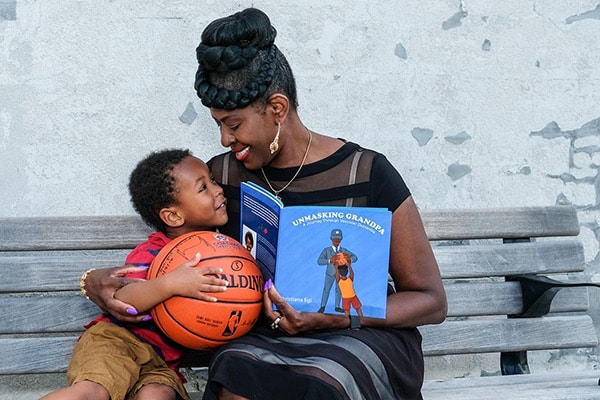
In other cases, the behavioral symptoms of dementia lead to rifts between family members. A cousin or parent that is normally very calm might start an argument that can be hurtful. But if people knew that these symptoms are attributed to dementia, they may become more willing to visit.
“Some people say ‘Oh, I don’t want to
see my mom like this’ or ‘I don’t want to
remember them like this,’
so they don’t visit.”
Egi thought that demystifying dementia for children could go a long way toward educating parents. “The books tell real life stories, like the fear a person experiences when somebody [they know] is diagnosed with dementia,” she said. “I wrote these books through the eyes of children, and know that children are an important part of the caregiving team.”
After publishing her first children’s book, A Rose for Grandma, Egi was featured in the local news.
“A family friend called me and he said I didn’t even know that dementia or Alzheimer’s affects Black people,” and even some well educated people in the community weren’t aware that the disease could even affect them, she said.
Bridging the racial health gap
Egi believes that doctors need to understand the concerns of Black communities so that they don’t miss signs of dementia.
“The Black community is also a culture that protects itself,” she said. Historical biases may make Black people less likely to tell doctors certain symptoms. “Maybe mom or dad has become aggressive, but they are afraid to tell everything [to the doctor] because they think the family member will be committed.”
This bias goes both ways. Black patients aren’t always sent to see a specialist. Black people are actually two times more likely to have dementia than a white person but unfortunately, don’t get the same type of care, diagnosis or resources,” Egi said. Indeed, studies show that Black patients are more likely to experience discrimination at their doctor’s office, leading to a missed diagnosis.
This impedes the path to proper — and safe — care for dementia symptoms like dementia-related aggression. hen a person explains that their husband or wife is acting aggressive, Egi said, some doctors will just prescribe pills without digging into the root of the problem.
“The Black community are predisposed to high blood pressure, diabetes, heart disease, and these are causes of vascular dementia and Alzheimer’s,” she said. “If we know how to mitigate these problems, you know, then we’ll help mitigate the chance of developing dementia.”
“If we know how to mitigate these problems,
then we’ll help mitigate the
chance of developing dementia.”
Meanwhile, Egi’s second book focuses on these risk factors in her second book which is called Unmasking Grandpa. The book emphasizes that “just having sugar problems [as diabetes is commonly referred to in the community]” can have serious complications including heart attack, blindness, and amputations. “We don’t understand how serious these situations are, and we don’t manage them well.”
Through her multi-pronged approach for improving dementia care and awareness, Egi hopes to make an impact in the reach of the disease — and its disproportionate burden on Black families.
